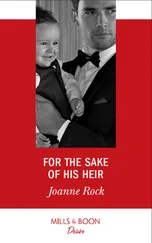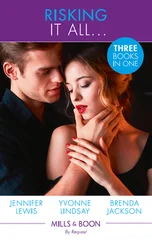Elizabeth George - For the Sake of Elena
Здесь есть возможность читать онлайн «Elizabeth George - For the Sake of Elena» весь текст электронной книги совершенно бесплатно (целиком полную версию без сокращений). В некоторых случаях можно слушать аудио, скачать через торрент в формате fb2 и присутствует краткое содержание. Жанр: Детектив, на английском языке. Описание произведения, (предисловие) а так же отзывы посетителей доступны на портале библиотеки ЛибКат.
- Название:For the Sake of Elena
- Автор:
- Жанр:
- Год:неизвестен
- ISBN:нет данных
- Рейтинг книги:4 / 5. Голосов: 1
-
Избранное:Добавить в избранное
- Отзывы:
-
Ваша оценка:
- 80
- 1
- 2
- 3
- 4
- 5
For the Sake of Elena: краткое содержание, описание и аннотация
Предлагаем к чтению аннотацию, описание, краткое содержание или предисловие (зависит от того, что написал сам автор книги «For the Sake of Elena»). Если вы не нашли необходимую информацию о книге — напишите в комментариях, мы постараемся отыскать её.
For the Sake of Elena — читать онлайн бесплатно полную книгу (весь текст) целиком
Ниже представлен текст книги, разбитый по страницам. Система сохранения места последней прочитанной страницы, позволяет с удобством читать онлайн бесплатно книгу «For the Sake of Elena», без необходимости каждый раз заново искать на чём Вы остановились. Поставьте закладку, и сможете в любой момент перейти на страницу, на которой закончили чтение.
Интервал:
Закладка:
Mrs. Flo said, “Let’s just slip this off, dearie.”
Next to her, Barbara felt her mother cringe.
“Barbie…” A note of unquestionable defeat sounded in the two syllables of her name.
Barbara had often wondered what it had been like for her brother, whether he’d slipped away easily without rising from his final coma, whether he’d opened his eyes at the last to fi nd himself abandoned by everyone and everything save the machines and tubes and bottles and gadgets that had been industriously prolonging his life.
“Yes. That’s a good girl. A button. Now another. We’ll get you settled and have a nice cup of tea. I expect you’d like that. A slice of cake as well?”
“Cabbage.” Mrs. Havers drew the word out. It was nearly indistinguishable, like a faint cry, distorted, from a great distance.
Barbara made the decision. “Her albums,” she said. “Mrs. Flo, I’ve forgotten my mother’s albums.”
Mrs. Flo looked up from the scarf which she’d managed to untangle from Mrs. Havers’ hands. “You can bring them later, dear. She won’t want everything all at once.”
“No. These are important. She’s got to have her albums. She’s collected…” Barbara stopped for a moment, knowing in her mind that what she was doing was foolish, feeling in her heart that there was no other answer. “She’s planned holidays. She’s got them done up in albums. She works on them every day. She’ll be lost and-”
Mrs. Flo touched her arm. “My dear, do listen. What you’re feeling is natural. But this is for the best. You must see that.”
“No. It’s bad enough, isn’t it, that I forgot a picture of myself. I can’t leave her here without those albums. I’m sorry. I’ve taken up your time. I’ve made a mess of everything. I’ve just…” She wouldn’t cry, she thought, not with her mother needing her and Mrs. Gustafson to be spoken to and arrangements to be made.
She went to the chest of drawers, snapped closed the framed photographs, and returned them to the suitcase which she swung off the bed. She took a tissue from her pocket, using it to wipe her mother’s cheeks and her nose.
“Okay, Mum,” she said. “Let’s go home.”
The choir was singing the Kyrie as Lynley crossed Chapel Court and approached the chapel itself which, fronted by an arcade, comprised most of the court’s west range. Although it clearly had been built to be admired from Middle Court, which stood to its east, eighteenth-century calls for college expansion had enclosed the seventeenth-century chapel into a quadrangle of buildings of which it was the focal point. Even through the mist and the darkness, it could hardly have been otherwise.
Ground lights glowed against the Weldon stone ashlar exterior of the building, which- if it hadn’t been designed by Wren-was surely a monument to his love of classical ornamentation. The facade of the chapel rose from the middle of the arcade, defined by four Corinthian pilasters which supported a pediment both broken and penetrated by a clock and a lantern cupola. Decorative swags looped from the pilasters. An oeil-de-boeuf glittered on each side of the clock. At the centre of the building hung an oval entablature. And all of it represented the concrete reality of Wren’s classical ideal, balance. Where, at its north and south ends, the chapel did not fill in the entirety of the west range of the court, the arcade framed the river and the backs beyond it. The effect was lovely at night with the river mist rising to swirl round the low wall and lap at the columns. In sunlight, it would have been magnifi cent.
Like a coincidental accent to this thought, a trumpet fanfare played. The notes were pure and sweet on the cold night air. As Lynley pulled open the chapel door at the southeast corner of the building-unsurprised to fi nd that the middle entry was merely an architectural device unintended for use-the choir answered the fanfare with another Kyrie . He entered the chapel as a second fanfare began.
To the height of the arched windows which rose to a plaster dog-tooth cornice, the walls were panelled in golden oak beneath which matching pews faced the solitary central aisle. Lined up in these were the members of the college choir, their attention fixed on a solitary trumpeter who stood at the foot of the altar, completing the fanfare. She was quite dwarfed by the gilded baroque reredos, framing a painting of Jesus calling Lazarus from the dead. She lowered her instrument, saw Lynley, and grinned at him as the choir burst into the fi nal Kyrie . A few crashing bars from the organ followed. The choir master jotted notes in his music.
“Altos, rubbish,” he said. “Sopranos, screech-owls. Tenors, howling dogs. The rest of you, a pass. The same time tomorrow evening, please.”
General moaning greeted his evaluation of their work. The choir master ignored this, shoved his pencil into his thatch of black hair, and said, “The trumpet was excellent, however. Thank you, Miranda. That will be all, ladies and gentlemen.”
As the group disbanded, Lynley walked down the aisle to join Miranda Webberly, who was cleaning her trumpet and repacking it into its case. “You’ve gone off jazz, Randie,” he said.
Her head popped up. Her top knot of curly ginger hair bounced and bobbled. “I never!” she answered.
She was dressed in her usual style, Lynley noted, a baggy sweat suit which she hoped would both elongate and camouflage her short, plump body at the same time as its colour-a deep heliotrope blue-would darken the shade of her own pale eyes.
“Still in the jazz society then?”
“Absolutely. We have a gig on Wednesday night at Trinity Hall. Will you come?”
“Wouldn’t miss it.”
She grinned. “Good.” She snapped the trumpet case closed and set it on the edge of a pew. “Dad phoned. He said I ought to expect one of his men to come crawling round this evening. Why’re you alone?”
“Sergeant Havers is handling some personal business. She’ll be along later. Tomorrow morning, I should guess.”
“Hmmm. Well. D’you want a coffee or something? I expect you want to talk. The buttery’s still open. Or we could go to my room.” Despite the casual sound of the latter invitation, Miranda’s cheeks coloured. “I mean if you want to talk privately. You know.”
Lynley smiled. “Your room.”
She struggled into a huge pea jacket-tossing a “Ta, Inspector” over her shoulder when he helped her get it on-wrapped a scarf round her neck, and picked up her trumpet case. She said, “Right. Come on, then. I’m over in New Court,” and headed down the aisle.
Instead of crossing Chapel Court and using the formal passageway between the east and south buildings-“These’re called the Randolph digs,” Miranda informed him. “After the architect. Ugly, aren’t they?”-she led him along the arcade and into a doorway at its north end. They went up a short flight of stairs, down a corridor, through a fi re door, down another corridor, through another fi re door, down another flight of stairs. All the time Miranda talked.
“I don’t know yet how I feel about what’s happened to Elena,” she said. It sounded like a discourse she’d been having with herself most of the day. “I keep thinking I should feel outrage or anger or grief, but so far I’ve not felt anything at all. Except guilty for not feeling what I ought to feel and sort of disgustingly self-important now that Daddy’s involved- through you, of course-and that puts me ‘in the know.’ How despicable really. I’m a Christian, aren’t I? Shouldn’t I mourn her?” She didn’t wait for Lynley to reply. “You see, the essential problem is that I can’t quite grasp that Elena’s dead. I didn’t see her last night. I didn’t hear her leave this morning. That’s a fair description of how we lived on a regular basis anyway, so everything seems perfectly normal to me. Perhaps if I had been the one to find her, or if she’d been killed in her room and our bedder had found her and come screaming in to get me-kind of like a fi lm, you know?-I would have seen and known and been moved somehow. It’s the absence of feeling that’s worrying me. Am I turning to stone? Don’t I even care?”
Читать дальшеИнтервал:
Закладка:
Похожие книги на «For the Sake of Elena»
Представляем Вашему вниманию похожие книги на «For the Sake of Elena» списком для выбора. Мы отобрали схожую по названию и смыслу литературу в надежде предоставить читателям больше вариантов отыскать новые, интересные, ещё непрочитанные произведения.
Обсуждение, отзывы о книге «For the Sake of Elena» и просто собственные мнения читателей. Оставьте ваши комментарии, напишите, что Вы думаете о произведении, его смысле или главных героях. Укажите что конкретно понравилось, а что нет, и почему Вы так считаете.












